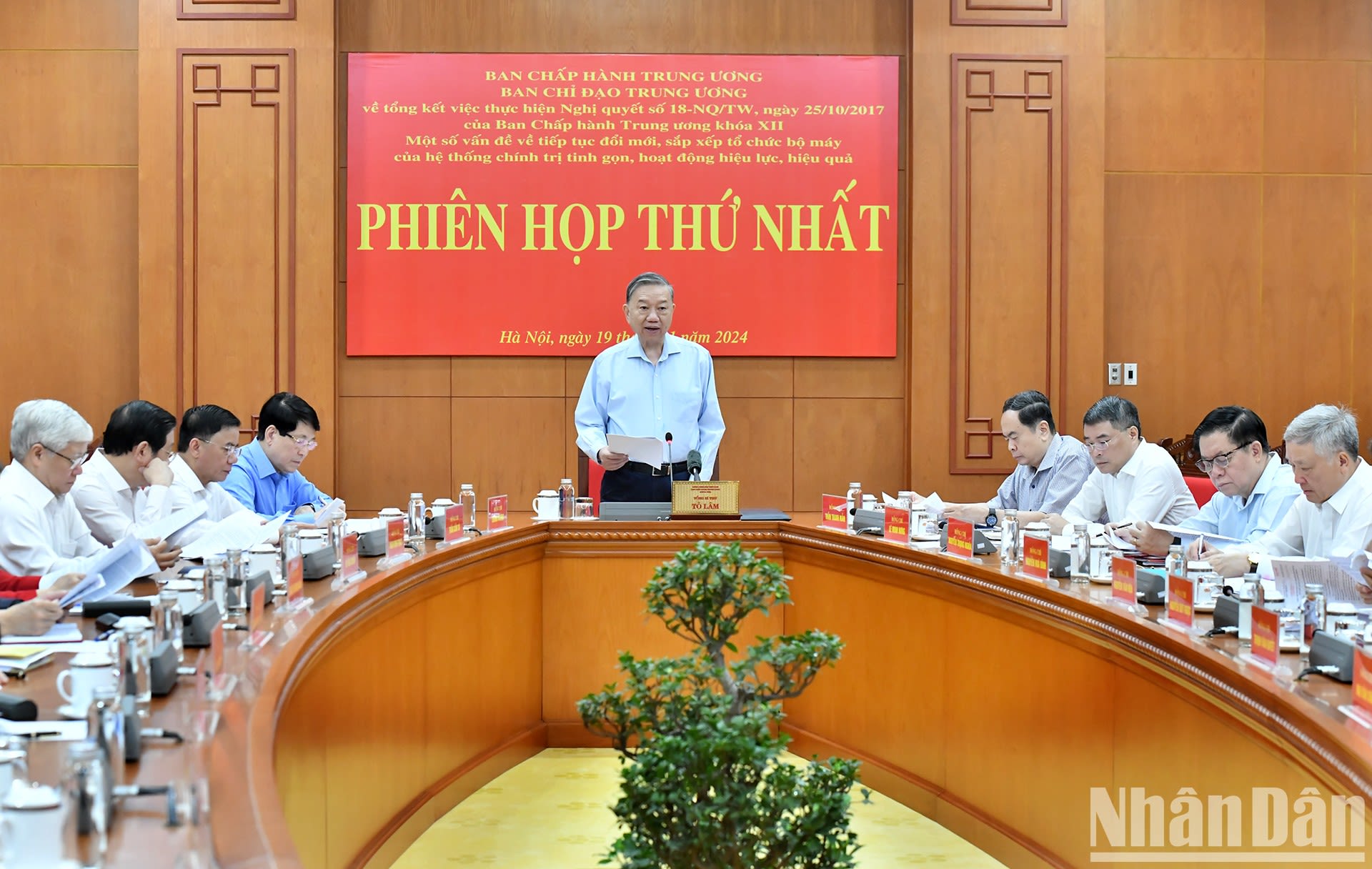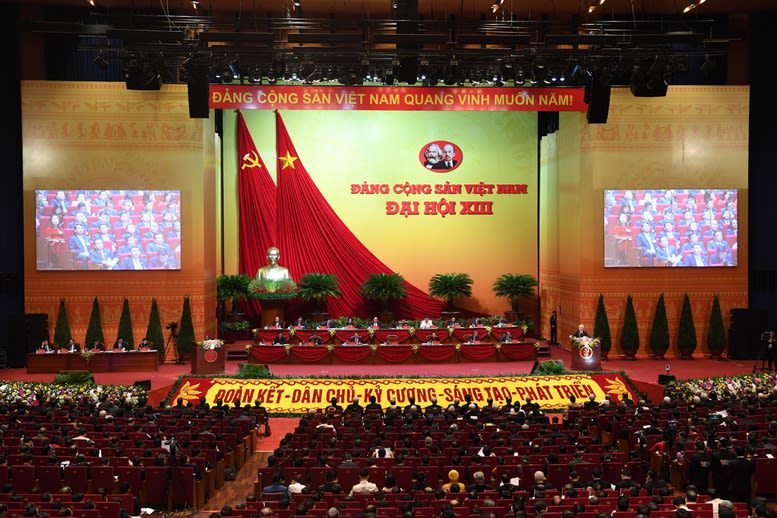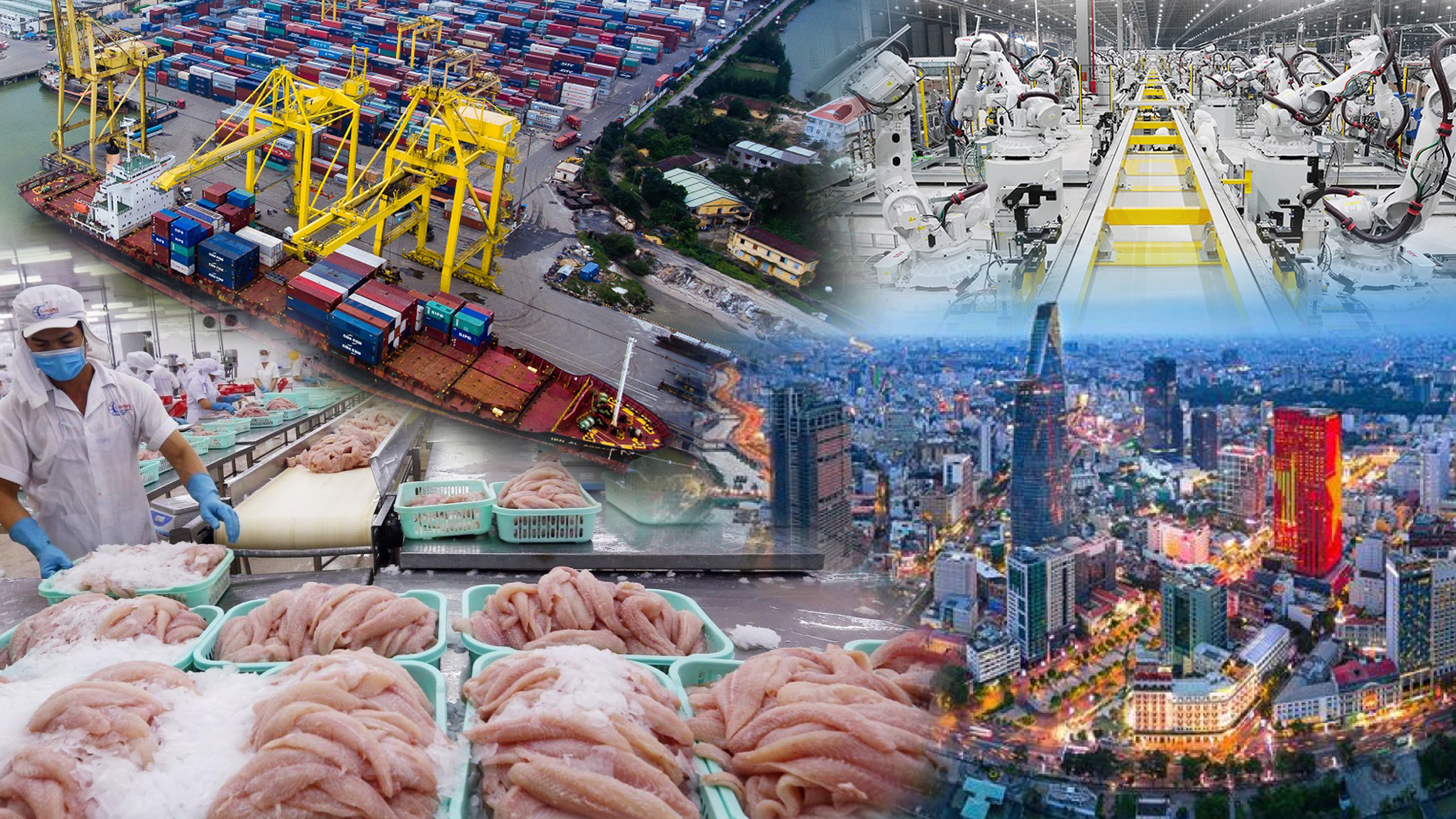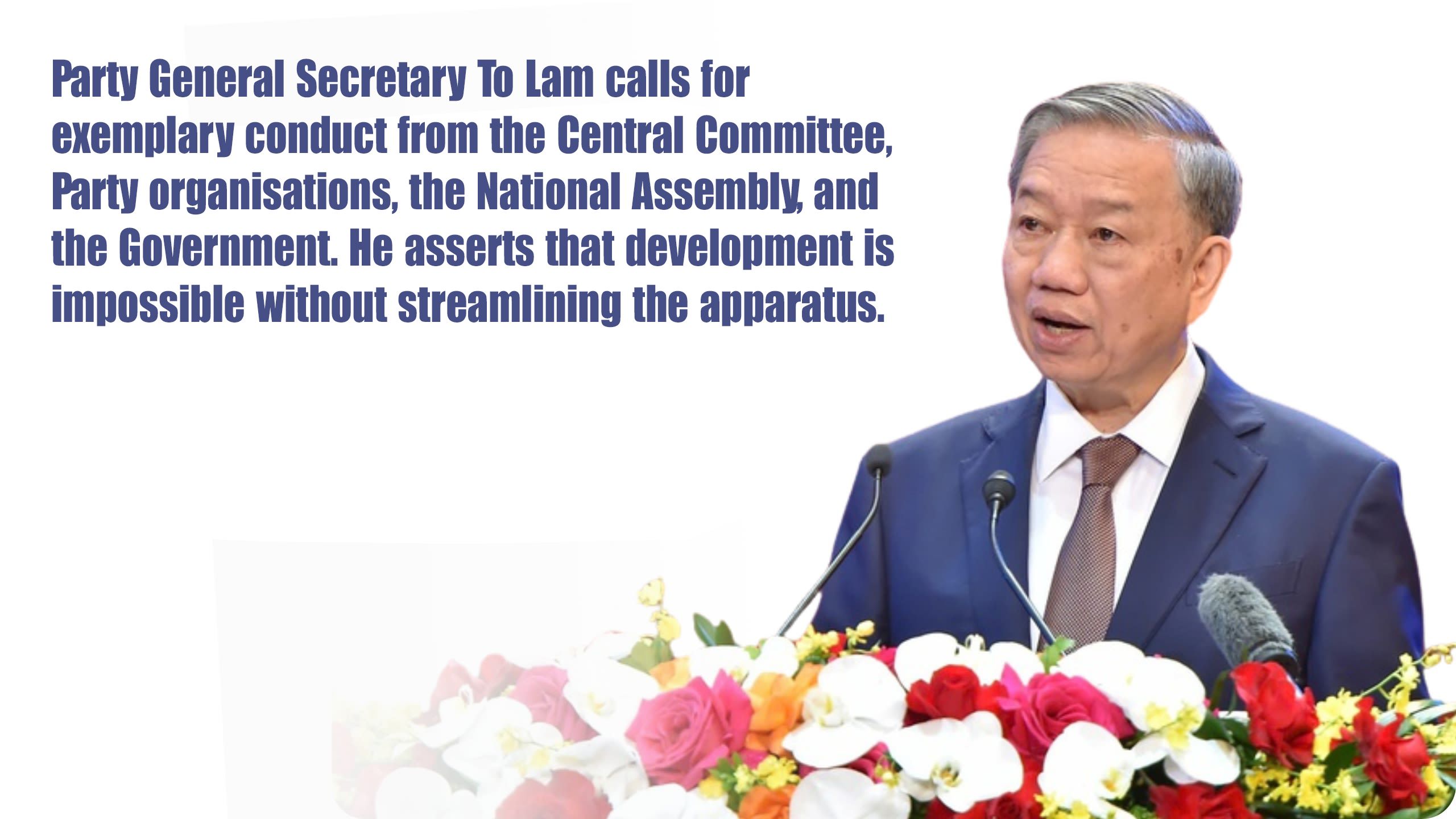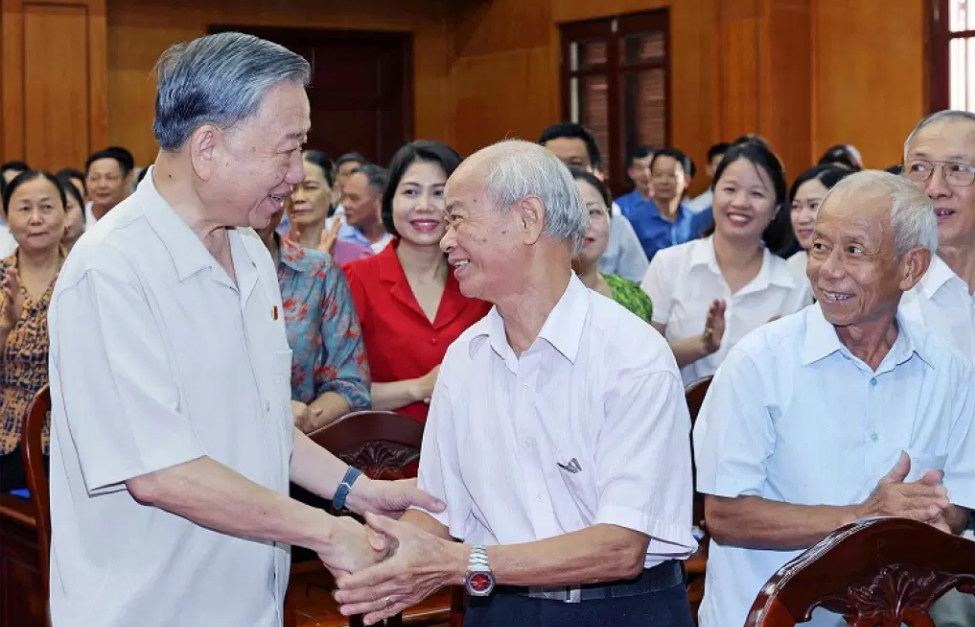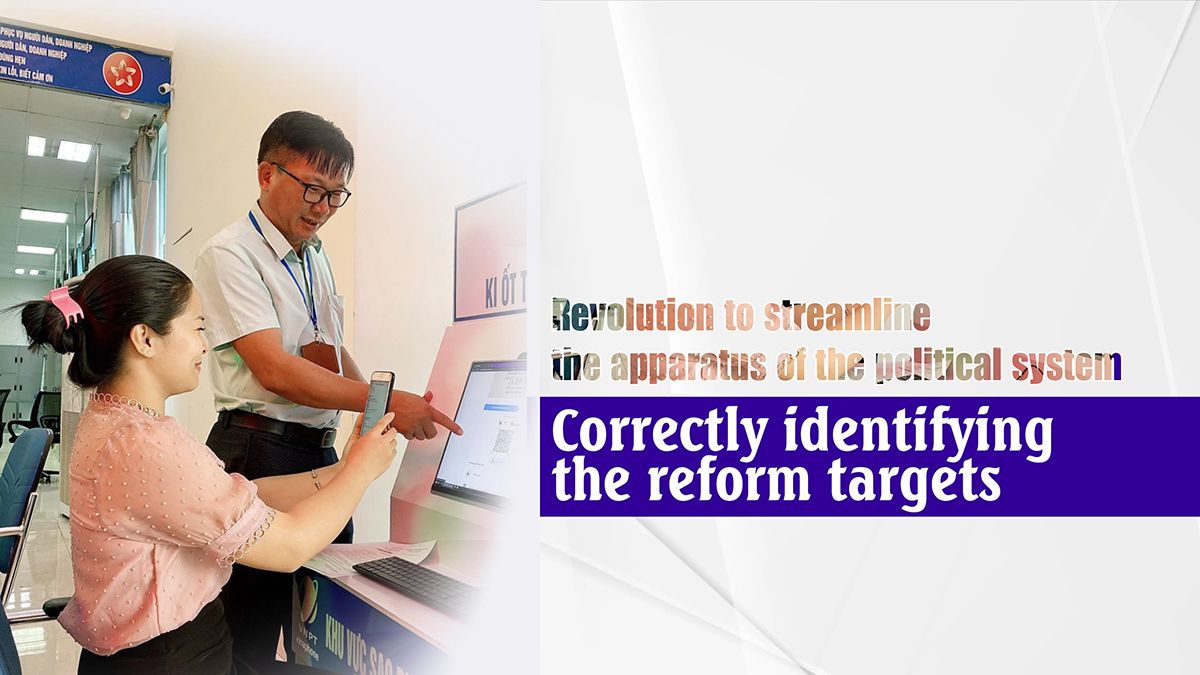
Pushing through reform and streamlining the apparatus of the political system is not only a key task in the current period but also a strategic breakthrough to carry the country further forward on the path of comprehensive development. The determination and consensus in implementing this wide-ranging and crucial reform will lay solid groundwork for Vietnam’s entry into a new era of prosperity and civilisation.
On November 19, General Secretary To Lam, Head of the Central Steering Committee on reviewing the implementation of Resolution 1, issued by the 12th-tenure Party Central Committee in 2017, on several issues on continuing to reform the apparatus of the political system for greater efficiency, chaired the committee’s first meeting. Concluding the meeting, General Secretary To Lam stressed that reviewing Resolution 18 is a task of special importance. As a revolution to streamline the apparatus of the political system, it must be implemented with the entire political system’s highest determination and strong action. General Secretary To Lam also pointed out that reorganising and streamlining the apparatus is a very difficult, sensitive and complex task, directly affecting every person in each organisation, especially in the dissolution and merger of some agencies and organisations.
Therefore, it requires every Party member, official and public worker to have unity, strong determination, bravery and even the sacrifice of personal interests for the common good. To that end, it is necessary to effectively enhance communication work across the entire political system and society about the policy, requirements and tasks of apparatus streamlining in the new situation.
General Secretary To Lam chairs the first meeting of the Central Steering Committee on reviewing the implementation of Resolution 18 issued by the 12th Central Committee in 2017 on several issues on continuing to reform the apparatus of the political system for greater efficiency. (Photo: Dang Khoa)
General Secretary To Lam chairs the first meeting of the Central Steering Committee on reviewing the implementation of Resolution 18 issued by the 12th Central Committee in 2017 on several issues on continuing to reform the apparatus of the political system for greater efficiency. (Photo: Dang Khoa)
Here we would like to mention the task of reforming the state apparatus, especially the state administrative apparatus, to meet the requirements of the current period, taking the country to a new era — the era of the Vietnamese nation’s rise.
Urgency in streamlining the state apparatus
Since the 6th National Party Congress in 1986, when Vietnam began to undertake the Doi Moi reform and switch from a command economy to a market economy, the Party has determined that economic reform must go in tandem with state apparatus reform. The Party has introduced many resolutions and conclusions to lead the implementation of the policy of reforming, reorganising and streamlining the apparatus of the political system towards greater efficiency.
In particular, the implementation of Resolution No. 18-NQ/TW (dated October 25, 2017) has achieved a number of important results, which have initially created positive changes in innovating, reorganising the apparatus, and improving the operational efficiency of agencies, units and organisations in the political system.
Next, the resolution of the 13th National Party Congress set out the orientation for national development until 2030: “building and perfecting a pure, strong, streamlined, effective and efficient socialist rule-of-law state, serving the people and the development of the country.” However, so far, the state apparatus (the apparatus of state administrative agencies) from the central to local levels has not been organised in a synchronous and comprehensive manner, and the streamlining of staff has not yet integrated with administrative restructuring. Several ministries and branches still take on local tasks, leading to the existence of a request-grant mechanism, which can easily give rise to corruption, wastefulness, and negative phenomena.
The resolution of the 13th National Party Congress set out the orientation for national development until 2030: “building and perfecting a pure, strong, streamlined, effective and efficient socialist rule-of-law state, serving the people and the development of the country.” (Photo: VGP)
The resolution of the 13th National Party Congress set out the orientation for national development until 2030: “building and perfecting a pure, strong, streamlined, effective and efficient socialist rule-of-law state, serving the people and the development of the country.” (Photo: VGP)
The practice of the country’s ‘Doi Moi’ (Renewal shows that Vietnam's political system, under the comprehensive and absolute leadership of the Party, has operated successfully during the process of national construction and defence. Under the leadership of the Party, with the drastic participation and efforts of the entire political system, the entire people and the entire army, the Party and State's guidelines and policies have been implemented synchronously, resolutely and effectively, overcoming many difficulties and challenges and recording great achievements of historical significance, which can be seen through the practical results in many fields. National defence and security are important and regular tasks, firmly protecting national independence, sovereignty and territorial integrity, protecting the Party, State, people, socialist regime, culture and national interests, thus maintaining political stability and a peaceful environment. The fields of culture, society and environment have received due attention, in line with economic development and have gained many important achievements. Culture is identified as a spiritual foundation, an inner resource, a breakthrough driving force to promote national development. Social security is guaranteed, the material and spiritual life of the people is constantly improved with the motto of “leaving no one behind”. The economy has recorded impressive progresses. Diplomacy has made great strides, with the bilateral ties with major powers such as the US, China, and Russia having been upgraded to comprehensive strategic partnerships. Vietnam has established relations with nearly 200 countries and territories in the world. However, the socialist-oriented market economy has its own rules, requiring further innovation of the political system: the leadership and ruling role of the Party, the management of the State to unlock the maximum resources and opportunities for national development, especially in the new era — the era of the fourth industrial revolution — when the emergence of artificial intelligence (AI) is changing the world rapidly.
Our country is entering a period of strong integration and development.
Our country is entering a period of strong integration and development.
In the context of the country entering a period of strong integration and development, the reform and restructuring of the organisational apparatus of the political system, particularly within state machinery, has become an especially urgent task. This effort aims to foster proactivity, creativity, and breakthroughs to meet practical demands while enhancing the nation’s management and governance capacity. This is not merely a technical administrative reform, it also reflects a deep political determination, embodying the wisdom and strategic vision of the Party in leading the nation.
In a recent article titled “Streamlined - Compact - Strong - Performance - Effectiveness - Efficiency”, General Secretary To Lam emphasised the need for exemplary conduct from the Party’s Central Committee, Party organisations, the National Assembly, and the Government. He stated that without streamlining the apparatus, development is not achievable.
Clearly, an effectively organised and operated state apparatus not only addresses internal challenges but also lays a solid foundation for the nation to rise further in this new context. To achieve this, it is essential to unify and enhance understanding of the Party’s policies and guidelines for renewing the political system, particularly through emphasising that state machinery reforms must meet the following criteria:
Firstly, the reform of state machinery must align with the objective rules of development and ensure compatibility with the modern socio-economic context. An efficient state apparatus is considered a prerequisite for driving economic growth, improving people’s living standards, and achieving social equity. When the state apparatus is organised in a scientific and reasonable manner and operates effectively, resources are optimally allocated and policies are implemented cohesively, resulting in more substantial outcomes. This serves as the foundation for ensuring sustainable and comprehensive national development in line with the objective rules of the era.
Secondly, state apparatus reform should not stop at streamlining, it must also create a powerful impetus to unleash the full potential of social productivity, significantly enhancing societal vitality, advancing productive forces, and paving the way for the nation to undertake comprehensive reforms across all fields. This will drive economic development towards greater efficiency, equity, and sustainability, all for the benefit of the people. A well-organised apparatus will boost the effectiveness of administrative bodies, thereby supporting major reforms in areas such as the economy, education, healthcare, culture, and the environment. This goes beyond mere procedural improvement; it is an essential path toward building a modern administrative system that adapts to global development trends and better meets the needs and expectations of the people.
Thirdly, more importantly, reforming the state apparatus will contribute to consolidating and enhancing people's trust in the Party and the State. A scientific, streamlined, transparent and effective administrative apparatus not only reduces shortcomings in management but also affirms the sense of responsibility, dedication and management capacity of the staff and civil servants. This transparency and effectiveness will create a wave of consensus in society, arousing the spirit of excitement and trust of the people in the Party and the State. This is an important factor in creating solidarity and consensus in the whole nation, thereby building a more stable and stronger society.
Elite, streamlined, strong, efficient, valid and effective political system - The right motto for action
The viewpoint of “an elite, streamlined, strong, efficient, valid and effective political system” put forward by General Secretary To Lam has become an important guideline for building a streamlined state apparatus suitable for the development requirements of the times. This is not only an administrative reform orientation but also a strategic focus to create a scientific, transparent state management system, focusing on real values to create a solid foundation for the liberation and development of social productive forces, enhancing the vitality of the country’s management and administration system. This is an important principle and a prerequisite for further development of labour, knowledge, techniques, technology, and capital to continuously create wealth to serve society and improve people's lives.
The streamlining of the organisational apparatus must be associated with streamlining the payroll and making good use of talents. This requires retaining only those cadres and civil servants who are truly capable, meet the job requirements, dare to take on responsibility, dare to undertake the work and are dedicated to the assigned tasks. Streamlining is not simply about cutting down on quantity but about improving the quality of human resources, ensuring that the cadres and civil servants have the highest expertise, qualifications, qualities, service spirit and especially, the ability to solve practical problems. To do this, it is necessary to build a transparent and scientific screening and evaluation mechanism based on specific work results, avoiding formal or preferential evaluation. A transparent evaluation system will not only encourage those who work well but also eliminate individuals who do not meet the requirements, thereby improving overall performance.
Streamlining is not simply about reducing the number of employees but about improving the quality of human resources, ensuring that the staff and civil servants have the highest expertise, qualifications, qualities, service spirit and especially, the ability to solve practical problems.
The apparatus should be organised towards a clear division of labour, avoiding duplication and overlap and promoting decentralisation and delegation of power with the motto of local decisions, actions, and responsibilities. Administrative agencies must be designed according to the “one task, one focal point” model, in which each task is assigned to an agency or individual with primary responsibility. Specifically: correctly identify requirements and tasks; correctly identify the apparatus organisation; correctly identify the payroll; correctly identify cost-effectiveness; correctly identify resources.
In addition, focusing on promoting the modernisation of the management system and enhancing the administrative capacity of the state apparatus is an ongoing goal and an essential requirement for national development. Work efficiency, management capacity improvement, and perfection of the state apparatus must be considered the main criteria to assess activity performance, effectiveness, and efficiency to bring the greatest value to society.
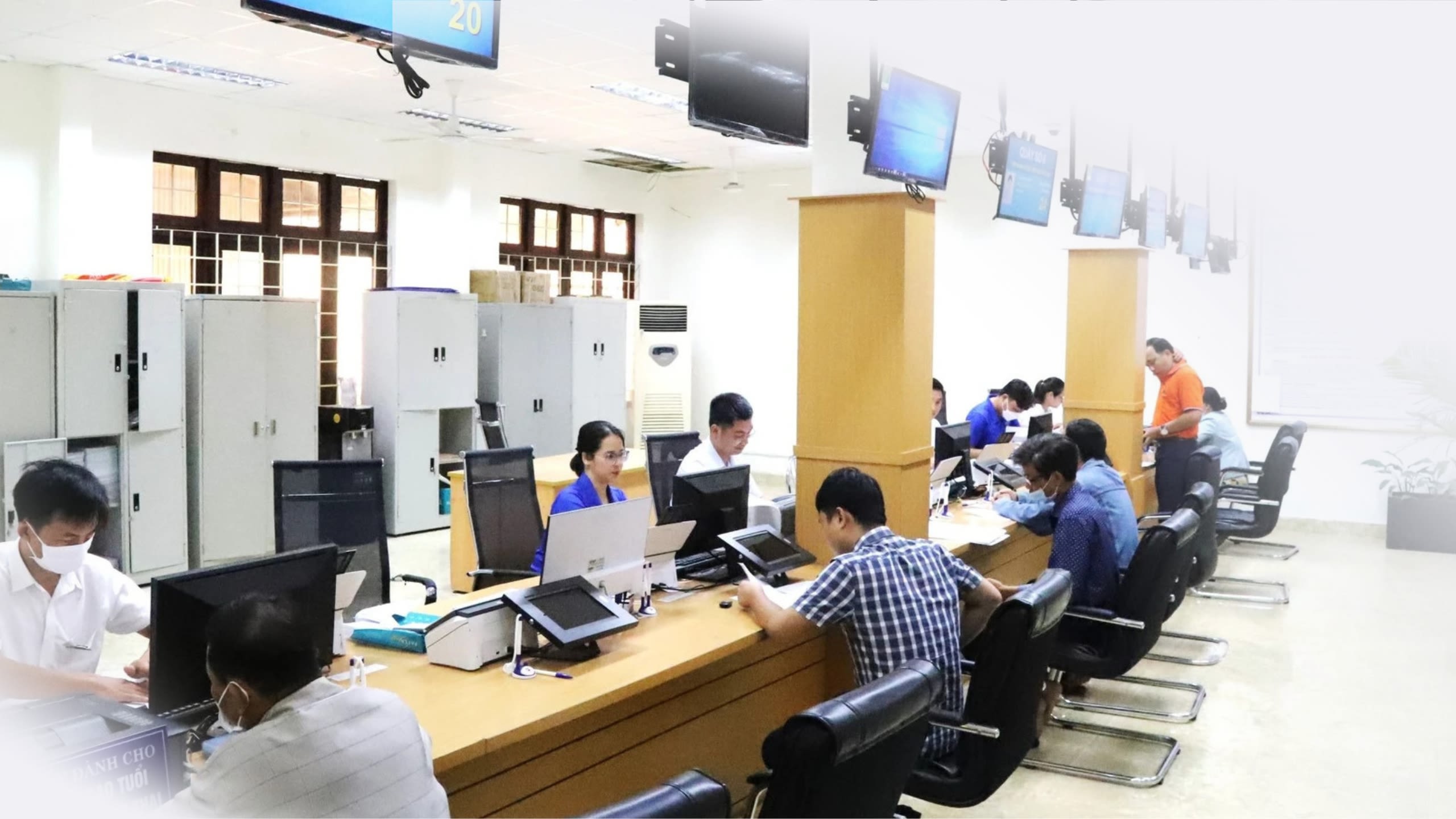
Key strategic tasks
Reforming the state apparatus is both a temporary solution to respond to urgent, immediate requirements and a key strategic task that provides a significant opportunity for Vietnam to advance further on the path of integration and development. This is the foundation for realising major goals and ushering the country into a new era with a new position and stature on the international stage.
Firstly, identifying the reform of the state apparatus as a comprehensive revolution for the nation's development is essential. Therefore, it is necessary to seriously implement the Party's policies, state laws, and regulations. In the context of deep international integration and the 4.0 industrial revolution, a modern and effective administrative apparatus will help Vietnam maximise opportunities from the international environment while also addressing domestic challenges such as economic growth, climate change, and social inequality. A scientifically designed and transparent state management system will not only enhance governance efficiency but also open up unprecedented opportunities for innovation and sustainable development.
Secondly, reforming the state apparatus to promote the modernisation of the management system and enhance state management capacity is a prerequisite for successfully implementing long-term socio-economic strategies. As such, there must be a strong political determination, significant effort, and decisive action in implementation, especially by leaders of ministries, sectors, and localities, with a clear understanding of "clear people, clear tasks, clear responsibilities, clear progress, and clear results." A streamlined and efficient system will optimise resources, improve the business environment, and promote the development of key sectors such as education, healthcare, technology, and the environment. This is the key to making Vietnam a wealthy, prosperous, and livable country in the future.
Thirdly, the reform of the state apparatus must place the people at the centre, always prioritising the interests of the people and putting the nation's and the people's interests first. This will strengthen the people's trust in the Party and the State, as well as in the country's renewal process. A transparent and efficient administrative system will not only increase accountability but also create consensus and motivation throughout society. When the people see the dedication and effectiveness of the state management, their trust in the government will be strengthened, thereby mobilising the vast power of unity to achieve the country's ambitious development goals.
The reformation of the state apparatus is also a strong commitment to building a favourable administrative environment, encouraging and motivating businesses to develop and attract resources from international investors while creating motivation to liberate and develop productive forces, be clear about ideology, and promote creativity in all fields.
To be successful in reforming the state apparatus, it is necessary to persistently take the people as the root, take the people as the centre, and mobilise the solidarity of the entire people, so that the spirit of "people know, people discuss, people do, people inspect, people monitor, and people benefit" is realised in the country's political and social life.
To be successful in reforming the state apparatus, it is necessary to persistently take the people as the root and the centre, and mobilise the solidarity of the entire people such that the spirit of "people know, people discuss, people do, people inspect, people monitor, and people benefit" is realised in the country's political and social life. (General Secretary To Lam with voters of Hung Yen Province, July 2, 2024. Photo: VNA)
To be successful in reforming the state apparatus, it is necessary to persistently take the people as the root and the centre, and mobilise the solidarity of the entire people such that the spirit of "people know, people discuss, people do, people inspect, people monitor, and people benefit" is realised in the country's political and social life. (General Secretary To Lam with voters of Hung Yen Province, July 2, 2024. Photo: VNA)
Experience has proven that as long as we persevere in the direction, are steadfast in the Party's ideology, closely follow the viewpoints, policies and guidelines, focus on the comprehensive development of people and the progress of the whole society, and constantly create a good life with the motto and destination of serving the people, then restructuring and reforming the state apparatus in the spirit of efficiency, effectiveness, and the motto of "lean, compact, strong" is a task that cannot be delayed. This is not only the responsibility of the Party, the Government, and the leading agencies, but also the desire of all the people to join hands and unite towards the achievements of development in all aspects such as economy, politics, culture, society, and healthcare, for a strong Vietnam and prosperous and happy Vietnamese people.
The reform process requires strategic vision, determination, synchronous innovation, daring to confront, courageously facing to overcome difficulties and challenges, persistently streamlining the apparatus to the end, resolutely fulfilling aspirations, achieving the highest goals and requirements set out to enter a new era — the era of the nation’s rise. This is an era of development and prosperity under the leadership of the Communist Party of Vietnam, with the successful building of a socialist Vietnam with wealthy people, a strong nation, and a democratic, fair, and civilised society standing shoulder to shoulder with the world's great powers, in which every citizen enjoys a prosperous and happy life and receives support to develop and get rich, making more and more contributions to global peace, stability, development, human happiness, and global civilisation. From now on, all Vietnamese people — a hundred million people as one, under the leadership of the Party — will join forces, work together, maximise opportunities and advantages, minimise risks and challenges, steer the country to comprehensive and strong development, breakthrough, and take-off.
